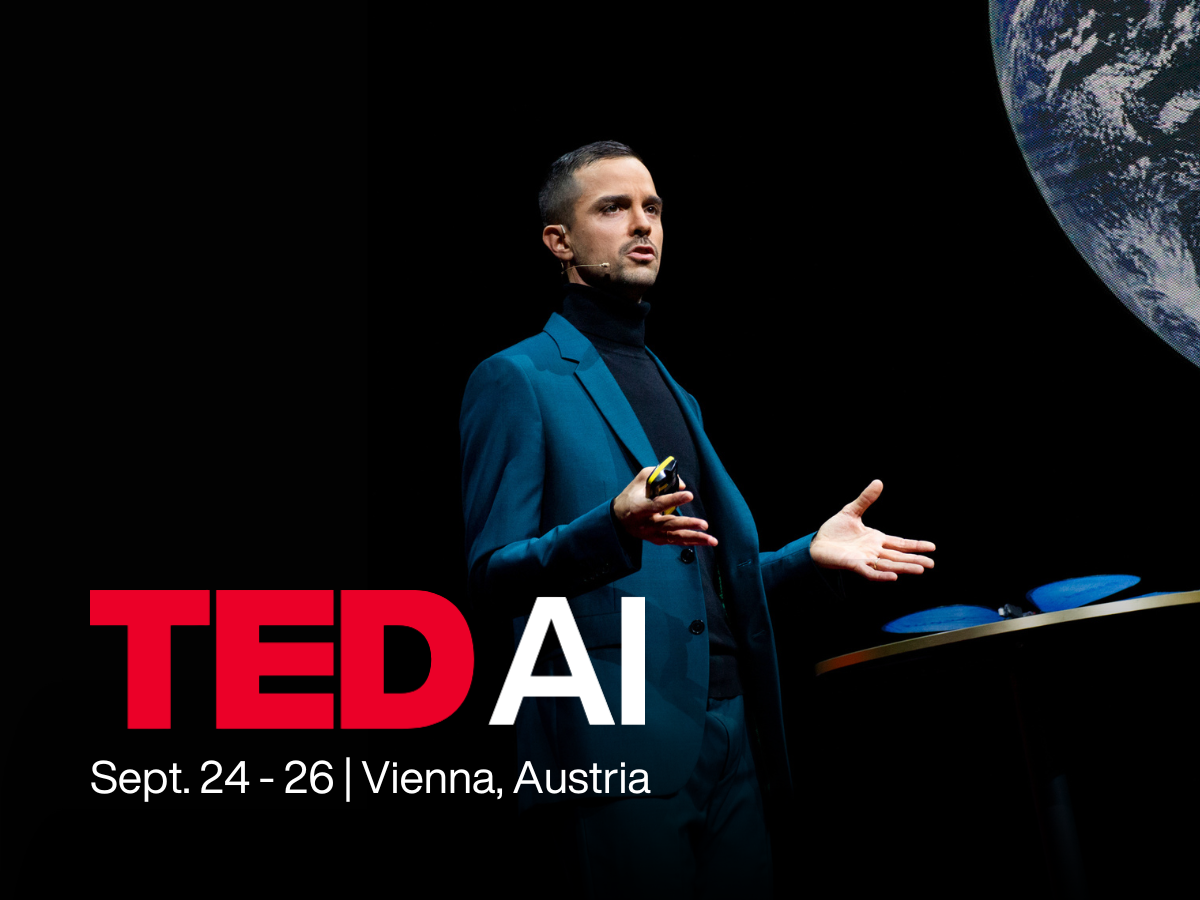
3 vital AI conversations well explore together at TEDAI Vienna
blog.ted.com
News 3 vital AI conversations well explore together at TEDAI ViennaPosted by: TED Staff August 28, 2025at 11:00 am EDTArtificial intelligence has become one of the great topics of our age. We read about it daily, we marvel at its abilities, and we worry about its dangers. Beneath the excitement and anxiety, there are some deeper conversations we are still failing to have: questions about how we as thinkers, leaders and builders can shape the world we will all have to live in with AI. And the window to answer these questions is closing fast.Thats why, for three remarkable days, we will gather in the heart of Europe, in Vienna, Austria, to dedicate our time and attention to the most crucial conversations on AI and especially the ones we are not yet having. These are questions that shape how our daily lives unfold, how our markets operate and how our political systems function. At TEDAI Vienna, we will create space for nuance and contradiction, foster genuine debate and dive into three conversations uncomfortable and yet necessary that we must have at this moment in history before its too late.(Photo: Cherie Hansson / TEDAI Vienna)1. AI and the erosion or evolution of critical thinkingIn the age of AI, theres a growing risk that well grow accustomed to answers that come too easily. We might one day realize that what weve lost isnt our intelligence but, perhaps even worse, our patience for thinking. The beauty and burden of critical thinking isnt about knowing the answer: its about learning how to doubt, to compare, to weigh and to hold a question in the mind long enough to see its complexities. At TEDAI Vienna, researcher Advait Sarkar will premiere new work tools which, if used well, can become a partner in this process: tools that ask us better questions, challenge our assumptions and sharpen our reasoning. But we cant allow the conversation to stop there. As technological progress accelerates at astonishing speed, we must ask ourselves: What could thinking and consciousness look like for a superintelligent mind? Philosopher Joscha Bach will lead us through this profound question and share his latest research insights from the frontier of machine consciousness.(Photo: Robert Leslie / TEDAI Vienna)2. AI is beyond Silicon ValleyWe often speak of AI as if it were born in just one small corner of the world. But in truth, AI is now everywhere. At TEDAI Vienna, well hear from Oriol Vinyals, technical lead of Gemini at Google DeepMind, on how AI is being advanced in research labs in the UK; from policymakers such as Henna Virkkunen, executive vice president of the EU Commission, shaping its governance; from Hiroaki Kitano, president of Sony CSL in Japan, applying it to robotics; from Mercedes Bidart, empowering micro-entrepreneurs in Colombia to harness its potential; and from Bolor-Erdene Battsengel, bringing it into classrooms across Mongolia.We can no longer afford to view AI through the lens of a single location or discipline. Our world, our economies, our lives, are too interconnected. The rules we set in one place will reverberate everywhere, while the benefits and harms will know no borders. To guide AI wisely, we need the insights, values and priorities of a truly global conversation and it will require the participation of each and every one of us.(Photo: Cherie Hansson / TEDAI Vienna)3. AI is not a race to be won, but a home to be builtWe often describe AI in the language of competition: a race. The problem with a race is that it ends at a finish line. There are clear winners and losers, and once its over, there is little thought for what comes next.A more helpful metaphor might be that of building a home. A home is created slowly, with care and cooperation. It involves many skills and perspectives: architects and builders, but also designers, leaders, educators, economists and the people who will live there, shaping it with their needs and hopes. A home must be safe, open to visitors and strong enough to last through storms.If we thought of building AI as building a home, we might place more value on the long-term work of trust, fairness and accessibility. We might remember that everyone whether they helped design it or not will have to live within its walls. And we might focus less on being the fastest to build it and more on ensuring it is worth inhabiting.Few people in the world can speak to this better than Verity Harding, who will take the stage at TEDAI Vienna to share her incisive view on why the arms-race metaphor is leading us astray, and how we might instead imagine a better and bolder path forward.These three conversations about our thinking habits, the global nature of AI and the metaphors we use are not peripheral. They are the foundation for a future in which AI is not something that happens to us but something we shape together. From TED Talks to small-circle debates, from deep-dive thematic dinners to relaxed get-togethers, at TEDAI Vienna were building an environment to hold space for these conversations. Whether youre a technology builder, a business leader, a creative or a researcher, now is the time to show up and help lay the foundations of the AI future we will all inhabit.
0 Comments
·0 Shares



